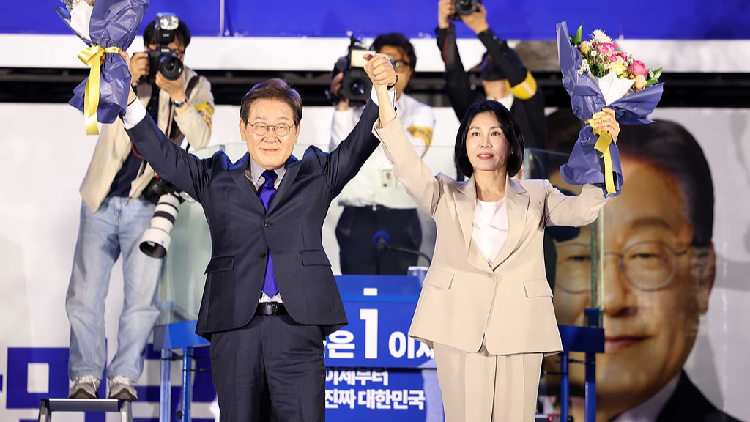Lee Jae-myung Officially Assumes Office as South Korea’s President in Historic Leadership Change
South Korea's new liberal President Lee Jae-myung officially begins his term, promising fresh policies and reforms.

South Korea ushered in a new political era on Wednesday as Lee Jae-myung was sworn in as president, promising to guide the nation out of the shadow of martial law and confront mounting economic pressures. Lee, a 61-year-old former human rights lawyer, claimed victory with 49.42 percent of the nearly 35 million votes cast, representing the nation’s highest election turnout since 1997. His closest rival, conservative Kim Moon-soo, received 41.15 percent, underscoring deep divisions amid recent political upheaval.
Addressing jubilant supporters outside parliament, Lee declared the election “judgment day” against the martial law imposed by his predecessor, Yoon Suk-yeol, and condemned what he called the failure of the previous administration to prevent the crisis. “The first mission is to decisively overcome insurrection and to ensure there will never be another military coup with guns and swords turned against the people,” he stated to resounding applause, vowing to restore public trust and reinforce democratic foundations shaken by months of instability.
Lee officially assumed office upon confirmation by the National Election Commission, immediately inheriting the powers of the presidency and command of the armed forces. An abbreviated inauguration ceremony was scheduled at parliament later in the morning, as South Koreans anticipated the swift transition of power after a turbulent interim government presided over by multiple acting presidents.
The president moved quickly to address the country’s pressing economic woes, prioritizing relief for middle- and low-income households and support for struggling small businesses. South Korea’s economy remains vulnerable due to slowing growth, compounded by external threats such as global protectionism. The Trump administration’s recent announcement of steep tariffs on autos and steel threatened to inflict further pain on major Korean industries, putting additional pressure on Lee’s fledgling administration to respond decisively.
“We can overcome this temporary difficulty with the combined strength of our people, who have great capabilities,” Lee emphasized, reiterating his confidence in the resilience of South Korean society. He faces an urgent deadline to resolve trade frictions with Washington, with U.S. officials demanding action on import duties blamed for widening bilateral trade imbalances.
International leaders quickly weighed in on the leadership change. U.S. Secretary of State Marco Rubio offered congratulations, affirming the “ironclad commitment” between the two allies, based on the Mutual Defense Treaty and robust economic ties. He signaled ongoing cooperation, stating that both countries are “modernizing the Alliance to meet the demands of today’s strategic environment and address new economic challenges.” Lee has repeatedly stressed the importance of the Seoul-Washington alliance, calling it the backbone of South Korea’s foreign policy.
The country still grapples with the aftermath of the six-month martial law period—a time marked by political chaos, criminal trials for former President Yoon and key officials, and economic volatility. Lee acknowledged these wounds in his victory speech, pledging real reforms to ensure South Korea’s future stability.
As Lee and his wife, Kim Hye-kyung, celebrated at the National Assembly, expectations soared for a new chapter in South Korean democracy—one focused on healing past divisions and confronting the complex challenges ahead.




